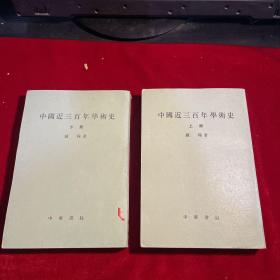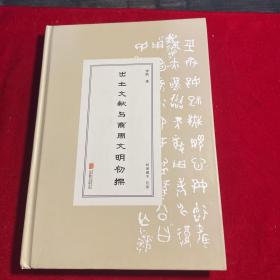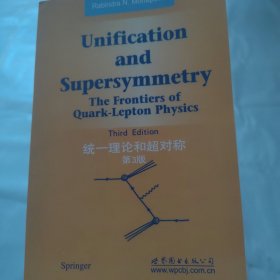
统一理论和超对称(第3版)
实物拍摄 内页发现一处图9 铅笔划痕 其余内页干净无笔迹划痕无缺损开裂
¥ 28 5.7折 ¥ 49 九品
仅1件
北京昌平
认证卖家担保交易快速发货售后保障
作者[美]莫哈帕特拉 著
出版社世界图书出版公司
出版时间2010-04
版次1
装帧平装
货号4-2
上书时间2024-09-06
- 店主推荐
- 最新上架
商品详情
- 品相描述:九品
图书标准信息
- 作者 [美]莫哈帕特拉 著
- 出版社 世界图书出版公司
- 出版时间 2010-04
- 版次 1
- ISBN 9787510005718
- 定价 49.00元
- 装帧 平装
- 开本 24开
- 纸张 胶版纸
- 页数 421页
- 正文语种 英语
- 【内容简介】
- 《统一理论和超对称(第3版)》是作者依据其为马里兰大学高年级研究生授课时所用的讲义编著而成,详细介绍了人们尝试建立一个能够描述自然界中各种基本相互作用的大统一理论的最新进展。《统一理论和超对称(第3版)》包罗甚广,涉及到粒子物理学中的大统一理论和超对称理论中的许多议题,例如自发对称破缺,大统一理论,超对称性和超引力等。作者在简要回顾了基本粒子理论之后,详细介绍了复合夸克,轻子,希格斯玻色子和CP破坏等论题,最后讨论超对称的大统一方案。这是《统一理论和超对称(第3版)》的第三版,进一步修订了书中内容,添入该领域的最新进展,特别是近年来实验方面的诸多进展。对这些新进展的集中介绍很有意义,使得《统一理论和超对称(第3版)》成为该领域中连接传统理论与研究前沿的有益桥梁。无论对该领域的研究生还是对研究人员来讲,《统一理论和超对称(第3版)》都是一部很有价值的教科书和参考文献。
- 【目录】
-
PrefacetotheThirdEdition
PrefacetotheSecondEdition
PrefacetotheFirstEdition
1ImportantBasicConceptsinParticlePhysics
1.1Introduction
1.2SymmetriesandCurrents
1.3LocalSymmetriesandYang-MillsFields
1.4QuantumChromodynamicTheoryofStrongInteractions
1.5HiddenSymmetriesofWeakInteractions
References
2SpontaneousSymmetryBreaking
2.1SymmetriesandTheirRealizations
2.2Nambu-GoldstoneBosonsforanArbitraryNon-AbelianGroup
2.3SomePropertiesofNambu-GoldstoneBosons
2.4PhenomenologyofMasslessandNear-MasslessSpin-0Bosons
2.5TheHiggs-KibbleMechanisminGaugeTheories
2.6GroupTheoryoftheHiggsPhenomenon
2.7RenormalizabilityandTriangleAnomalies
References
3TheSU(2)LxU(1)Model
3.1TheSU(2)LxU(1)ModelofGlashow,Weinberg,andSalam
3.2Neutral-CurrentInteractions
3.3MassesandDecayPropertiesofWandZBosons
3.4FermionMassesandMixing
3.5Higher-Order-InducedFlavor-ChangingNeutral-CurrentEffects
3.6TheHiggsBosons
3.7SU(2)LxU(1)ModelwithTwoHiggsDoublets
3.8PuzzlesoftheStandardModel
3.9OutlineoftheVariousScenarios
3.10BeyondtheStandardModel
References
4CPViolation:WeakandStrong
4.1CPViolationinWeakInteractions
4.2CPViolationinGaugeModels:Generalities
4.3TheKobayashi-MaskawaModel
4.4Left-RightSymmetricModelsofCPViolation
4.5TheHiggsExchangeModels
4.6StrongCPViolationandthe0-Problem
4.7SolutionstotheStrongCPProblemwithouttheAxion
4.8Summary
References
5GrandUnificationandtheSU(5)Model
5.1TheHypothesisofGrandUnification
5.2SU(N)GrandUnification
5.3Sin2OwinGrandUnifiedTheories(GUT)
5.4SU(5)
5.5GrandUnificationMassScaleandSin2θwatLowEnergies
5.6DetailedPredictionsoftheSU(5)ModelforProtonDecay
5.7SomeOtherAspectsoftheSU(5)Model
5.8GaugeCouplingUnificationwithIntermediateScalesbeforeGrandUnification
References
6SymmetricModelsofWeakInteractionsandMassiveNeutrinos
6.1WhyLeft-RightSymmetry?
6.2TheModel,SymmetryBreaking,andGaugeBosonMasses
6.3LimitsonMzRandrnwRfromCharged-CurrentWeakInteractions
6.4PropertiesofNeutrinosandLepton-Number-ViolatingProcesses
6.5BaryonNumberNonconservationandHigherUnification
6.6Sin2θwandtheScaleofPartialUnification
6.7Left-RightSymmetry——AnAlternativeFormulation
6.8HigherOrderEffects
6.9Conclusions
References
7SO(10)GrandUnification
7.1Introduction
7.2SO(2N)inanSU(N)Basis[3]
7.3FermionMassesandthe"ChargeConjugation"Operator
7.4Symmetry-BreakingPatternsandIntermediateMassScales
7.5DecouplingParityandSU(2)RBreakingScales
7.6SecondZBoson
References
8TechnicolorandCompositeness
8.1WhyCompositeness?
8.2TechnicolorandElectroweakSymmetryBreaking
8.3Techni-CompositePseudo-GoldstoneBosons
8.4FermionMasses
8.5CompositeQuarksandLeptons
8.6LightQuarksandLeptonsandtHooftAnomalyMatching
8.7ExamplesoftHooftAnomalyMatching
8.8SomeDynamicalConstraintsonCompositeModels
8.9OtherAspectsofCompositeModels
8.10SymmetryBreakingviaTop-QuarkCondensate
References
9GlobalSupersymmetry
9.1Supersymmetry
9.2ASupersymmetricFieldTheory
9.3Two-ComponentNotation
9.4Superfields
9.5VectorandChiralSuperfields
References
10FieldTheorieswithGlobalSupersymmetry
10.1SupersymmetryAction
10.2SupersymmetricGaugeInvariantLagrangian
10.3FeynmanRulesforSupersymmetricTheories[3]
10.4AllowedSoft-BreakingTerms
References
11BrokenSupersymmetryandApplicationtoParticlePhysics
11.1SpontaneousBreakingofSupersymmetry
11.2SupersymmetricAnalogoftheGoldbergerTreimanRelation
11.3D-TypeBreakingofSupersymmetry
11.4ORaifeartaighMechanismorF-TypeBreakingofSupersymmetry
11.5AMassFormulaforSupersymmetricTheoriesandtheNeedforSoftBreaking
References
12MinimalSupersymmetricStandardModel
12.1Introduction,FieldContentandtheLagrangian
12.2ConstraintsontheMassesofSuperparticles
12.3OtherEffectsofSuperparticles
12.4WhyGobeyondtheMSSM?
12.5MechanismsforSupersymmetryBreaking
12.6RenormalizationofSoftSupersymmetry-BreakingParameters
12.7SupersymmetricLeft-RightModel
References
13SupersymmetricGrandUnification
14LocalSupersymmetry(N=1)
15ApplicationofSupergravity(N=1)toParticlePhysics
16BeyondN=1Supergravity
17SuperstringsandQuark-LeptonPhysics
Index
点击展开
点击收起
相关推荐
— 没有更多了 —







































以下为对购买帮助不大的评价